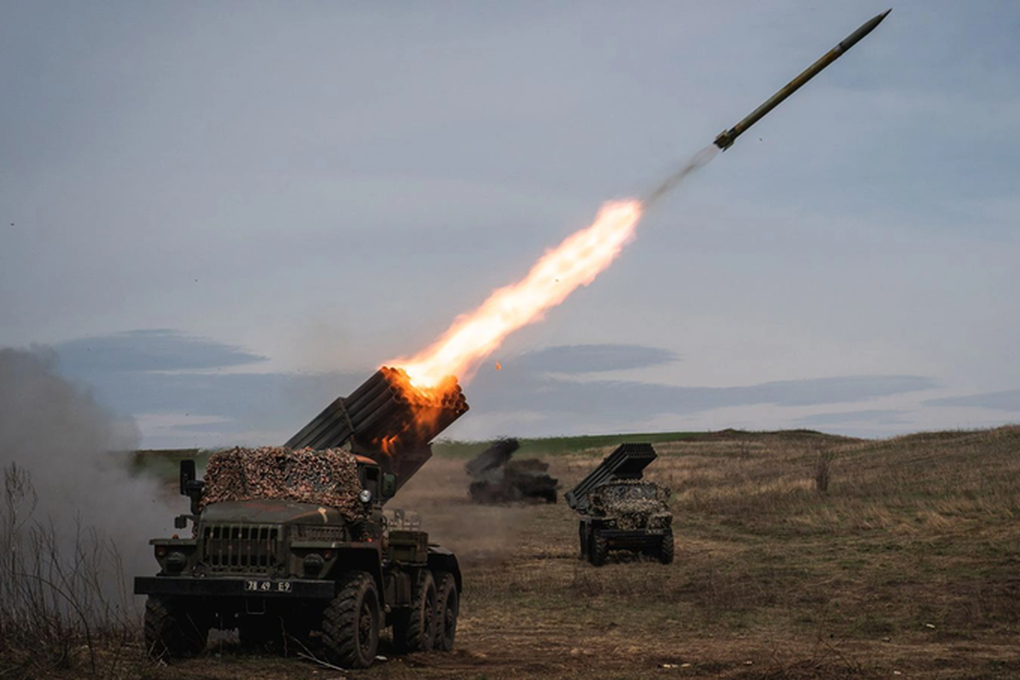
Ukrainian forces launch rockets at Russian targets in Donbass (Photo: Getty).
Bloomberg, citing a source familiar with the matter, said the EU appears to be falling behind on plans to supply Ukraine with 1 million artillery shells by March 2024.
The EU previously announced plans to provide Ukraine with the above ammunition for 12 months. Initially, the ammunition will be taken from existing stocks, then compensated through joint procurement contracts as well as strengthening the defense industry's capacity.
However, the source said that the EU plan has only achieved 30% progress so far. Based on the number of contracts signed so far, the EU is facing a scenario of not achieving the set target.
Western officials appear to be concerned that increased Russian production of artillery shells will make Ukraine’s counteroffensive more difficult. Ukraine relies heavily on Western ammunition as its Soviet-era arsenal dwindles.
Several EU member states appear to have asked the union's foreign policy arm to extend the deadline for the contracts, Bloomberg reported.
The United States, which is seeking to increase its production to about 1 million rounds a year by 2024, has urged the EU to step up production efforts, the sources said. The White House declined to comment on the report.
With Ukraine's counteroffensive making only limited progress and its allies preparing for a protracted conflict, the ammunition supplies promised by the EU are vital to helping Ukraine keep up with Russian output.
Some estimates suggest Russian factories will deliver 2 million shells next year, while the West suspects Moscow is receiving supplies from North Korea. Both Moscow and Pyongyang deny the accusation.
Several EU member states have not yet published specific data on the weapons they have supplied or the contracts they have signed.
About 10 countries, including the Baltic states, Germany, the Netherlands and Poland, have supplied or are planning to supply between 300,000 and 400,000 rounds, mainly at the EU's initiative.
Finland, Sweden, Denmark and Norway have placed orders for contracts worth 52 million euros and production is due to start next year.
Ammunition prices have risen since the initiative was launched, meaning the current budget may not be enough to meet the target, a source said.
Meanwhile, NATO is pushing its member states to move away from protectionism in their defense industries and agree on a single standard for artillery shells to boost production.
According to expert Stephen Bryen at the Center for Security Policy and the Yorktown Institute (USA), the Russia-Ukraine conflict shows that the West's defense production capacity is not prepared for a major war.
The US and its allies have been pouring massive amounts of weapons and military equipment into Ukraine over the past 20 months, and many countries are facing ammunition shortages.
However, the West’s ability to make up for lost production is a big question mark. Their industries have not been at war for decades, and the speed at which they can ramp up arms production for Ukraine or to protect their own national security or the bloc’s is a big question mark.
Source



































































































Comment (0)